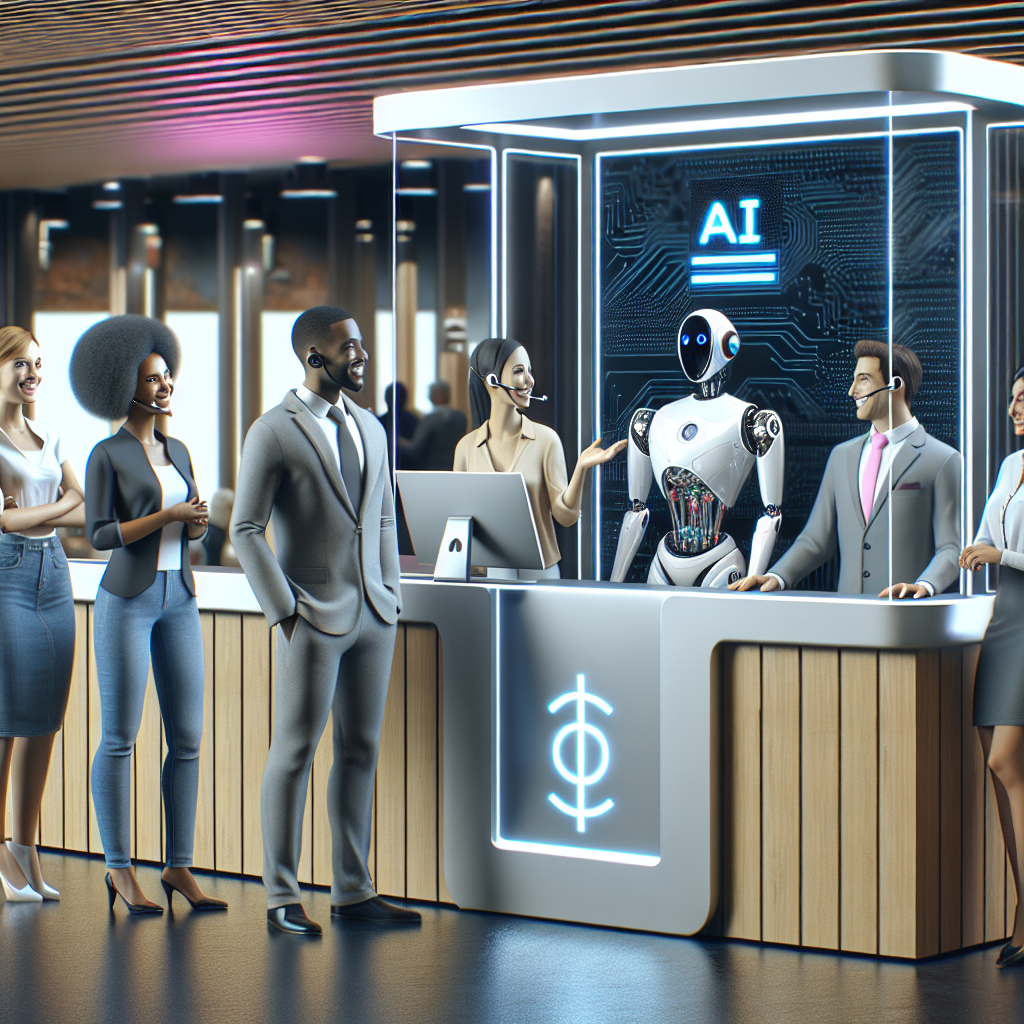In recent years, artificial intelligence (AI) has been making significant strides in revolutionizing customer service across various industries. From chatbots to virtual assistants, AI technologies are changing the way businesses interact with their customers, providing faster, more personalized, and efficient support. In this article, we will explore how AI is transforming customer service and the benefits it brings to businesses and consumers alike.
One of the most common applications of AI in customer service is the use of chatbots. Chatbots are computer programs that can simulate conversations with humans through messaging or voice interfaces. These bots are trained to understand and respond to customer inquiries, provide information, and even resolve issues without the need for human intervention.
Chatbots are available 24/7, enabling businesses to offer round-the-clock customer support without the need for a large team of agents. This not only improves customer satisfaction by providing instant responses but also reduces the workload of human agents, allowing them to focus on more complex tasks that require human judgment and empathy.
Additionally, chatbots can handle multiple inquiries simultaneously, ensuring that customers do not have to wait in long queues to get assistance. This efficiency in handling customer inquiries can lead to higher customer satisfaction rates and improved customer retention.
Another way AI is revolutionizing customer service is through the use of virtual assistants. Virtual assistants, such as Amazon’s Alexa, Apple’s Siri, and Google Assistant, are AI-powered tools that can perform various tasks, including answering questions, scheduling appointments, and even making purchases on behalf of the user.
Businesses can leverage virtual assistants to provide personalized recommendations and assistance to customers, leading to a more tailored and engaging customer experience. For example, a retail store can use a virtual assistant to suggest products based on a customer’s purchase history, preferences, and browsing behavior.
Furthermore, virtual assistants can help businesses streamline their operations by automating routine tasks, such as order tracking, appointment scheduling, and payment processing. This frees up human agents to focus on more complex and high-value tasks, such as handling escalated inquiries or building relationships with customers.
AI-driven analytics is another key area where AI is transforming customer service. By analyzing customer data and interactions, businesses can gain valuable insights into customer behavior, preferences, and pain points. This data can be used to personalize customer interactions, improve product offerings, and identify trends that can inform business decisions.
For example, AI-powered analytics can help businesses identify patterns in customer complaints and feedback, allowing them to proactively address issues before they escalate. Additionally, by analyzing customer interactions across various channels, businesses can gain a holistic view of the customer journey and identify opportunities to improve the overall customer experience.
Moreover, AI-driven analytics can help businesses identify opportunities for upselling and cross-selling by predicting customer needs and preferences based on past behavior. By leveraging this data, businesses can offer targeted promotions and recommendations that are more likely to resonate with customers, leading to increased sales and customer loyalty.
Overall, the use of AI in customer service is transforming the way businesses interact with their customers, leading to more personalized, efficient, and effective support. By leveraging AI technologies such as chatbots, virtual assistants, and analytics, businesses can improve customer satisfaction, streamline operations, and drive revenue growth.
FAQs:
Q: How can businesses ensure that AI-powered customer service is effective and customer-friendly?
A: To ensure that AI-powered customer service is effective and customer-friendly, businesses should focus on training their AI systems to understand and respond to customer inquiries accurately and empathetically. Additionally, businesses should provide human oversight to AI systems to handle complex issues and ensure that customers have the option to speak with a human agent if needed.
Q: Are there any privacy concerns associated with AI-powered customer service?
A: Yes, there are privacy concerns associated with AI-powered customer service, particularly around the collection and use of customer data. Businesses should be transparent about how customer data is collected, stored, and used, and ensure that appropriate security measures are in place to protect customer information. Additionally, businesses should comply with relevant data protection regulations, such as GDPR, to safeguard customer privacy.
Q: How can businesses measure the effectiveness of AI-powered customer service?
A: Businesses can measure the effectiveness of AI-powered customer service by tracking key performance indicators (KPIs) such as response time, resolution rate, customer satisfaction, and retention. By analyzing these metrics, businesses can identify areas for improvement and optimize their AI systems to deliver better customer experiences.
Q: What are the potential risks of relying too heavily on AI for customer service?
A: One potential risk of relying too heavily on AI for customer service is the risk of dehumanizing the customer experience. While AI technologies can provide efficient and personalized support, they may lack the empathy and emotional intelligence that human agents can bring to customer interactions. Businesses should strike a balance between AI and human support to ensure a positive and engaging customer experience.
In conclusion, AI is revolutionizing customer service by providing businesses with tools and technologies to deliver faster, more personalized, and efficient support to their customers. By leveraging AI-powered chatbots, virtual assistants, and analytics, businesses can improve customer satisfaction, streamline operations, and drive revenue growth. As AI technologies continue to evolve, businesses must adapt their customer service strategies to meet the changing demands of today’s consumers and deliver exceptional customer experiences.

